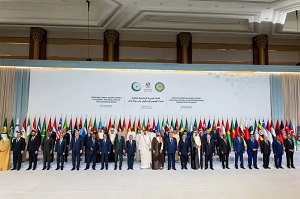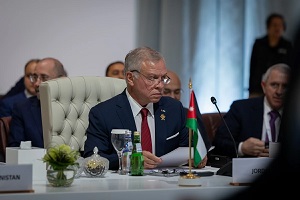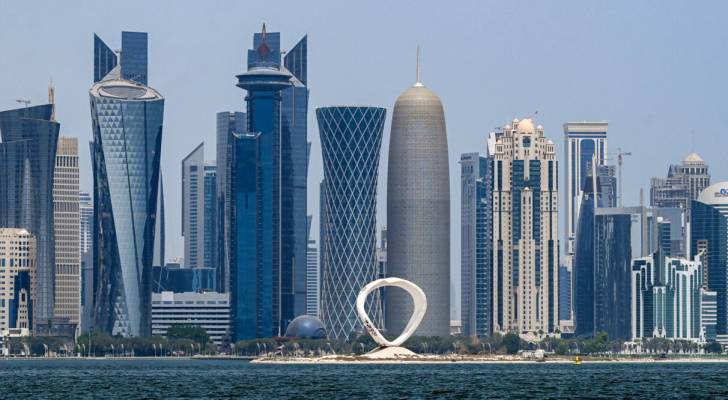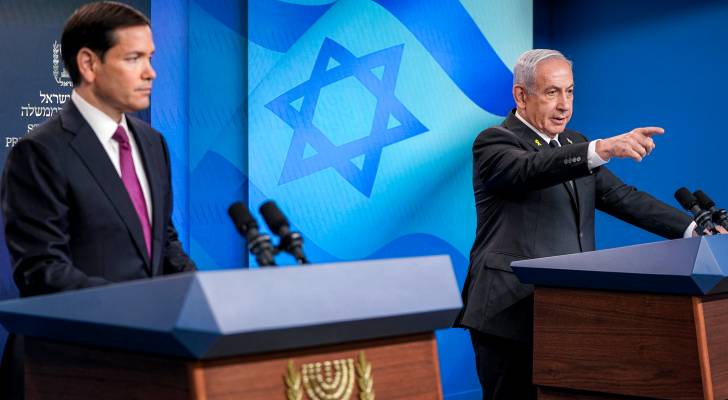Gov’t concludes sectoral dialogues, outlines priorities for second EMV programme
The Jordan Times
AMMAN — Minister of Government Communication and Government Spokesperson Mohammad Momani on Saturday said that a total of 17 sessions had been held to cover all the key drivers of the Economic Modernisation Vision (2026–2029) across its different sectors.
During a press briefing marking the conclusion of the sectoral sessions for the preparation of the second executive programme of the Economic Modernisation Vision 2026–2029, Momani noted that the sessions addressed a wide range of sectors, including water, energy, tourism, investment, education, financial services, trade, information technology and creative industries, healthcare, transport and logistics, industry, mining, agriculture and food security, women’s empowerment, social protection, the green economy, and urban development, Al Mamlaka TV reported.
“This joint effort demonstrates the spirit of cooperation with the private sector and reaffirms the government’s commitment to advancing economic growth.” He said
Momani stressed that the results of these workshops would be incorporated into a programme detailing actionable priorities, initiatives, and projects with set timelines, ahead of the launch of the second executive programme in the last quarter of 2025.
He noted that the next step would be to compile the results of the sectoral sessions, following earlier workshops at the Royal Hashemite Court, in order to evaluate the progress of the first phase of the vision and offer recommendations to guide the priorities of its second phase.
Momani also underlined that the conclusion of these workshops constitutes a significant milestone in the economic modernisation process, following the completion of the first executive programme (2023–2025).
Minister of State for Economic Affairs Muhannad Shehadeh highlighted that the EMV has two main significances, the foremost being that it is a vision that transcends governments, noting that the second executive programme of the current government serves as a continuation of the first.
Shehadeh noted that the first executive programme included 525 projects, most of which have been implemented, with the remainder set to be completed later.
He also stressed that the government’s main concern is for citizens to experience a tangible impact, which will be achieved through the quality of the projects, all of which must be measurable against two specific criteria, according to the Economic Affairs ministry statement.
He also highlighted that the second executive programme would focus on major national projects, including the railway project, the completion of the National Carrier project, the gas law, and inter-governorate transport initiatives. He added that the coming four years would encompass both legislative and implementation phases, with an emphasis on projects that deliver tangible results.
“The government conducted 17 dialogue sessions, attended by approximately 630 Jordanian participants, most of whom were academics, and the next step will be to review the outcomes and organise them according to priority,” Shehadeh said.
He emphasised that the rate of project completion alone does not reflect success, noting that the key measure is the clear roadmap provided by the EMV for successive governments, alongside the current administration under Prime Minister Jafar Hassan’s commitment to implement concrete projects that highlight the significance of economic growth, particularly with a recorded growth rate of 2.7 per cent.
Shehadeh also emphasised that the government is fully confident that the private sector would be the main driver of the Economic Modernisation Vision, stressing that while the capital expenditure allocated in the budget would be utilised, this alone would not achieve the targeted growth rates. "What will ensure these outcomes is meaningful integration with the private sector, rather than mere partnership," he added.
He noted that additional sectoral meetings would be held to determine projects that have a direct impact on economic growth and the daily lives of citizens, with the results to be compiled into a booklet scheduled for release in the first half of next month.
Minister of Planning and International Cooperation Zeina Toukan on Saturday said that the EMV aims to create one million economic opportunities and double Jordan’s GDP to around 5 per cent.
Toukan also stressed that close coordination with the private sector would be essential to achieving the Vision’s targets, which were set in 2022.
She also highlighted that the economy recorded a growth rate of 2.7 per cent, describing it as a positive indicator with room for further improvement.
Latest News
-
 Arab-Islamic Summit issues final statement, condemns Israeli attack on Qatar, calls for accountability
Arab-Islamic Summit issues final statement, condemns Israeli attack on Qatar, calls for accountability
-
 King delivers Jordan's address at Emergency Arab-Islamic Summit in Doha
King delivers Jordan's address at Emergency Arab-Islamic Summit in Doha
-
 Leaders unite against ‘Israeli’ strike on Qatar at emergency Arab-Islamic Summit
Leaders unite against ‘Israeli’ strike on Qatar at emergency Arab-Islamic Summit
-
 Gaza’s death toll rises to 64,905: Health Ministry
Gaza’s death toll rises to 64,905: Health Ministry
-
 Rubio promises Netanyahu “unwavering support” to ‘Israel’ in Gaza goals
Rubio promises Netanyahu “unwavering support” to ‘Israel’ in Gaza goals